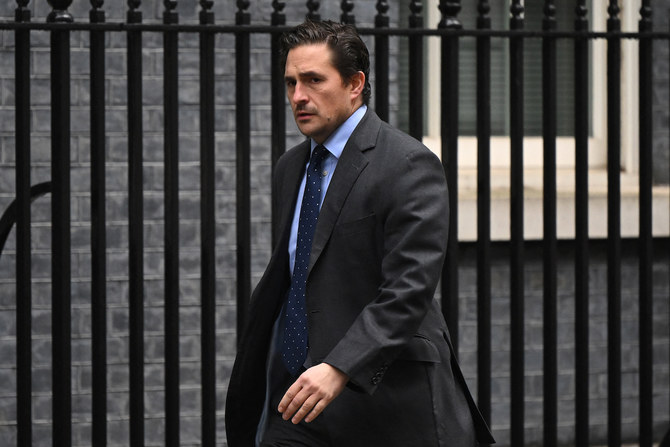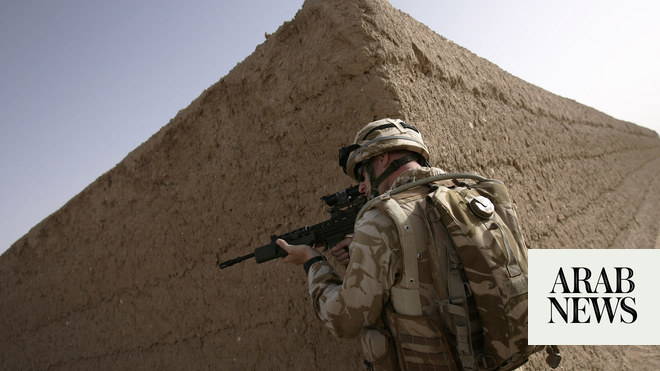
Ben Wallace supported controversial change despite knowledge of SAS war crimes allegations
BBC investigation revealed unit killed 54 people in suspicious circumstances over 6-month tour
LONDON: A former UK defense minister is being questioned over his support for a draft bill that would have provided soldiers accused of war crimes with effective legal immunity.
Elite special forces from Britain’s Special Air Service have faced a slew of war crimes allegations relating to their activity during the war in Afghanistan, the BBC reported.
Ben Wallace, the former defense secretary, was aware of the allegations but continued to promote the Overseas Operations Bill, which initially granted protection from war crimes prosecutions for alleged offenses older than 10 years since the charge.
Under Wallace, however, the period was halved to five years, effectively providing immunity to the SAS squadrons that operated in Afghanistan during that period.
Government sources with knowledge of the bill told the BBC that he “took personal charge of its passage,” and that he retained total control over any changes to its clauses.
Britain is now investigating the alleged SAS war crimes as part of a public inquiry launched in the wake of a BBC “Panorama” investigation.
The program revealed that one SAS squadron had killed 54 people in suspicious circumstances during the course of a six-month tour. Wallace is giving evidence to the inquiry.
The Overseas Operations Bill was voted on repeatedly in the House of Commons but was sent back by the House of Lords amid concerns that the International Criminal Court could intervene to pursue justice over the alleged war crimes cases.
It was later amended to exclude war crimes, torture, genocide and sexual violence from protection against prosecution. Wallace was still defense minister when the bill passed into law in April 2021.
Dominic Grieve, the former attorney general, told the BBC that Wallace’s support of the bill despite his apparent knowledge of the war crimes allegations “certainly raises questions.”
Grieve added: “If ministers knew there were potential prosecutions that were likely to arise from operations in Afghanistan, if you knew about the allegations regarding special forces during that time period, it strikes me as troubling that you would seek to make that change.
“The public inquiry may wish to look at this as part of their work examining the government’s handling of the allegations in question.”
Lt. Col. Nicholas Mercer, the British Army’s former chief legal adviser in Iraq, said: “Ministers appear to have known about the allegations against the SAS all along. So, was this a deliberate attempt to cover up those allegations under the guise of dealing with so-called vexatious claims? It’s a very serious question.”
The former Conservative government promoted the bill as a protective measure against “vexatious” legal claims against British soldiers who had served overseas.
But the bill faced mounting criticism from senior military figures and humanitarian advocates, who warned that it would provide accused soldiers with immunity from prosecution.
The BBC questioned Wallace over his knowledge of the war crimes allegations, during the period that he supported the bill.
But he declined to answer and later described the question as “leading and inaccurate” in a social media post.
Tessa Gregory, a partner at law firm Leigh Day, which is representing Afghan victims’ families in the inquiry, said Wallace was “well aware of serious concerns surrounding UK special forces operations” at the time the bill was introduced.
“It would be a matter of real concern for the bereaved families we represent if it was (Wallace) who personally decided that the presumption against criminal prosecution in the bill should apply to all offenses more than five years ago, rather than the 10 years recommended by his department.”












